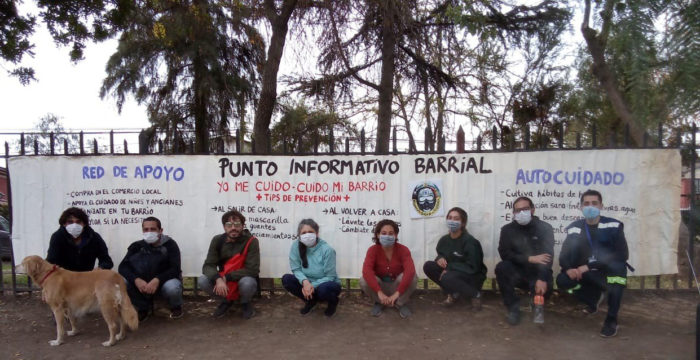
Publications

LAB’s newest publication is The Past is an Imperfect Tense, a novel by Bernardo Kucinski, author of K. It tells the story of a well-to-do white couple living in São Paulo who adopt a black baby. The father’s relationship with his son begins with great love and affection, but ends in ruin and rejection as the boy turns to drugs. Adoption, drug addiction and racism are all examined in the course of the story. You can order your copy here.
All LAB books since 2014 have been co-published with Practical Action Publishing, who have just launched their new website. LAB titles can be found here, and the complete catalogue here, with LAB titles on pp 95-103.
Practical Action look after all the printing, distribution and sales of LAB titles, while we focus on what we do best – commissioning and editing. It has proved to be a wonderfully fruitful partnership, without which LAB could scarcely hope to publish books. Practical Action has also scanned well over 100 previous LAB titles, which now never need to be ‘out of print’ as they can be downloaded electronically or printed on demand.
Since our last newsletter (21 April), we have published 39 articles. We wish we could publish more, but the existing volunteer team is already stretched to the limit. With more funding we could employ one or more people to ease the burden and enable us to expand. Please donate, if you can,at this link. And if you can make your donation regular, or monthly, that will really help.
You can also help us by encouraging friends and colleagues to subscribe (it’s free!) to this newsletter (almost 1,400 of you do so already). Just share this link with them.
Covid-19
We have continued with our regular updates about the impact of Covid-19 in the region, government actions and the survival strategies of communities and social movements.
There are updates for 24 April, 4 May, 22 May and 5 June all written for us by Emily Gregg. The pandemic, unsurprisingly, has spawned a tide of fake news, misinformation and delusion, riding on the platforms of social media. Robert Eveson has documented some of the excesses.
Argentina, Chile & Bolivia
The protest movement in Chile that erupted in October–November 2019, and won the promise of a referendum on a new constitution, has not halted, though mass assemblies are no longer possible. In two articles, Louise Morris documents how the protesters have adapted and have continued insisting that there must be no impunity for oppression. Emily Gregg explains how artistic collective Delight Lab, who use light projections to highlight social and environmental issues, have been targeted with threats, threats, intimidation, hacking and censorship.
Across the Andes in northern Argentina, the provincial government of Jujuy won praise for their decisive actions to limit the spread of Covid-19. But there are fears that some of their more authoritarian methods will remain in place as the province unlocks.
In Bolivia the picture is more mixed, with relatively few infections and deaths from the virus, but inadequate economic safety nets and ongoing doubts about the intentions of the ‘interim’ government of Jeanine Añez.
Brazil
Jan Rocha continues her wonderful series of blog posts about the political situation of the country: Bolsonaro the grave-digger (23 April); the president’s parallel universe (1 May); and quack doctor (19 May). Vladimir Safatle, a philosopher and professor at the Universidade de São Paulo examines Brazil’s crisis of leadership in detail, in an article translated by Tom Gatehouse for LAB, in the regular series we publish for Agência Pública. Another piece by Agência Pública’s Natalia Viana examines the Bolsonaro government’s increasingly intimate relationship with the FBI, US policing and intelligence agencies.
Brazil’s social movements have not remained passive in the face of government neglect. Favela dwellers are organising their own lockdowns and restrictions and, as Alistair Clark documents, the MST issued guidance to rural workers on safety measures when selling food at markets.
The Amazon and indigenous communities
Amazônia Latitude is producing a series of short podcasts to explain what is happening in the Amazon basin.
A number of LAB articles chart the Bolsonaro government’s evisceration of FUNAI and IBAMA, and active encouragement of deforestation, logging, land invasion, garimpo, mega-mining and ‘development’ of the Amazon. All of these threaten the future of the forest and its peoples. This threat is vastly amplified by the Covid-19 epidemic which threatens to decimate some of the most vulnerable communities in the world.
Marcos Colón and colleagues link deforestation and environmental degradation to the spread and lethality of disease in general and, in particular, of Covid-19. Sue Branford examines the calamitous loss of history and cultural memory caused by the death from coronavirus of indigenous elders, while Carlos Fausto interviews indigenous people whose families lost many members in previous epidemics.
In two powerful articles for Mongabay with Thais Borges, Sue Branford explains how the rising tide of violence meets with silence or tacit encouragement from President Bolsonaro, as illegal loggers attack IBAMA officials in Pará; and how quilombo communities at Boa Vista, are in danger of contracting coronavirus as miners and engineers travel to the vast Mineração Rio do Norte bauxite mine in Oriximiná. In a further post in LAB’s series with Agência Pública, Vasconcelo Quadros reports that 2,000 garimpeiros (small-scale miners) have invaded the Raposa Serra do Sol indigenous reserve in Roraima. In the same state, the territory of the Yanomami is under threat from illegal gold miners, as described by Marcos Colón.
Most endangered of the Amazon peoples are the still uncontacted tribes, who face extinction if Covid-19 reaches them, as indigenous leader Celia Xakriaba warns.
Colombia, Ecuador & Venezuela
While it was the uncollected bodies of coronavirus victims in Guayaquil which attracted media headlines, William Waters describes the less visible toll of lives in the Ecuador’s highlands. In Colombia, President Ivan Duque seems to spend more on PR to shore up his crumbling image than on planning to support those losing jobs and incomes, writes Richard McColl. Venzuela appears to have had relatively low rates of infection and mortality, but Victor Álvarez warns that the country faces a new threat as creditor vultures threaten to seize control of CITGO, the ‘crown jewel’ of the country’s oil assets. Only a pact between the Maduro government and opposition leader Juan Guaidó can stave off this loss, Álvarez argues.
Mexico
Like other countries with populist leaders, Mexico has fared poorly in the pandemic, writes Luis Vasquez. Government aid to the battered economy has been too little, too late and helps too few, argues Armando Van Rankin. Meanwhile inside homes, says Estela Casados, domestic violence threatens the lives and welfare of tens of thousands of women and children.
Central America
Authoritarian presidents, for the most part, have fared little better in dealing with the pandemic. Duque and Piñera have both failed to act decisively, while El Salvador’s Nayib Bukele’s draconian, but inconsistent, lockdown orders have been widely criticised, as Robert Eveson reports. Scott Wagner further explores Bukele’s futile reversion to ‘mano dura’ policies against the ‘mara’ gangs.
As thoughts turn to the indirect effects of the pandemic and its aftermath, Katie Jones looks at how schools in Costa Rica and Guatemala have responded, the real difficulty of implementing on-line learning in poor societies and the fears that many students, especially girls in rural Guatemala, will never return to school, setting back by many years the slow progress towards universal education.
Meanwhile in Nicaragua, writes Elizabeth Sanders, embattled small coffee producers have lost much of their market and are struggling to survive.
Other news
The present US administration seems so egregious an enemy of progress that it is easy to forget that US policy towards Latin America was destructive long before Donald Trump became president. John Washington, in an article in The Intercept, took a look at Joe Biden’s record (during and before the Obama administration) concluding that his positions are largely indistinguishable from those of his predecessors and inspire little confidence for a better future.
The distinguished Chilean novelist Luis Sepulveda has died of Covid-19.
‘Where journalism is planted, democracy blooms’, writes Marcos Colón, reporting on an appeal launched on World Environment Day by the Brazilian Network for Environmental Media. Journalists are increasingly under attack in today’s Brazil.
Best wishes and stay safe,
The LAB Team
